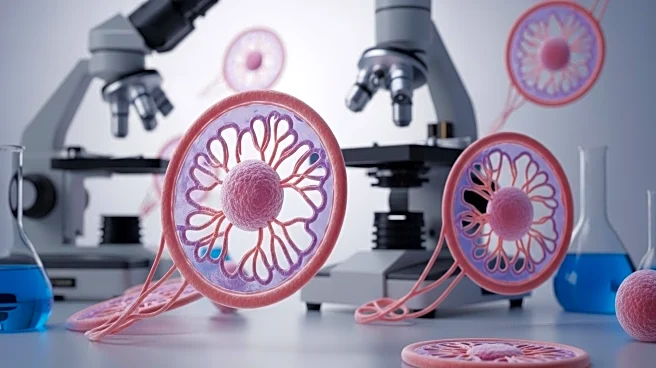What's Happening?
A recent study has investigated the TLR2-induced surface mobilization and release of CD14 in human platelets. The research, conducted with approval from the University of Wuerzburg's ethics committee, involved the collection and preparation of human platelets to study the expression and secretion of CD14. The study utilized various antibodies and reagents to detect CD14 expression and measure soluble CD14 secretion. Findings indicate that TLR2 stimulation leads to increased CD14 expression on the platelet surface, which may play a role in immune responses. The study provides insights into the molecular mechanisms of platelet activation and its implications for immune system functioning.
Why It's Important?
Understanding the mechanisms of CD14 mobilization in platelets is crucial for advancing knowledge in immunology and developing therapeutic strategies for immune-related disorders. The study's findings could have implications for the treatment of conditions involving platelet activation and immune responses, such as cardiovascular diseases and inflammatory disorders. By elucidating the role of TLR2 in CD14 expression, researchers can explore potential targets for drug development aimed at modulating immune system activity. This research contributes to the broader field of immunology, offering potential pathways for improving health outcomes related to immune system dysfunction.
What's Next?
Further research may focus on exploring the clinical applications of these findings, particularly in developing treatments for diseases involving platelet activation and immune responses. Researchers may also investigate the interactions between TLR2 and other receptors in platelets to gain a comprehensive understanding of their roles in immune system regulation. Collaborative studies could be initiated to assess the therapeutic potential of targeting CD14 mobilization in various health conditions.
Beyond the Headlines
The study highlights the importance of ethical considerations in biomedical research, emphasizing the need for informed consent and adherence to institutional guidelines. It also underscores the role of interdisciplinary collaboration in advancing scientific knowledge, as researchers from various fields contribute to understanding complex biological processes.









